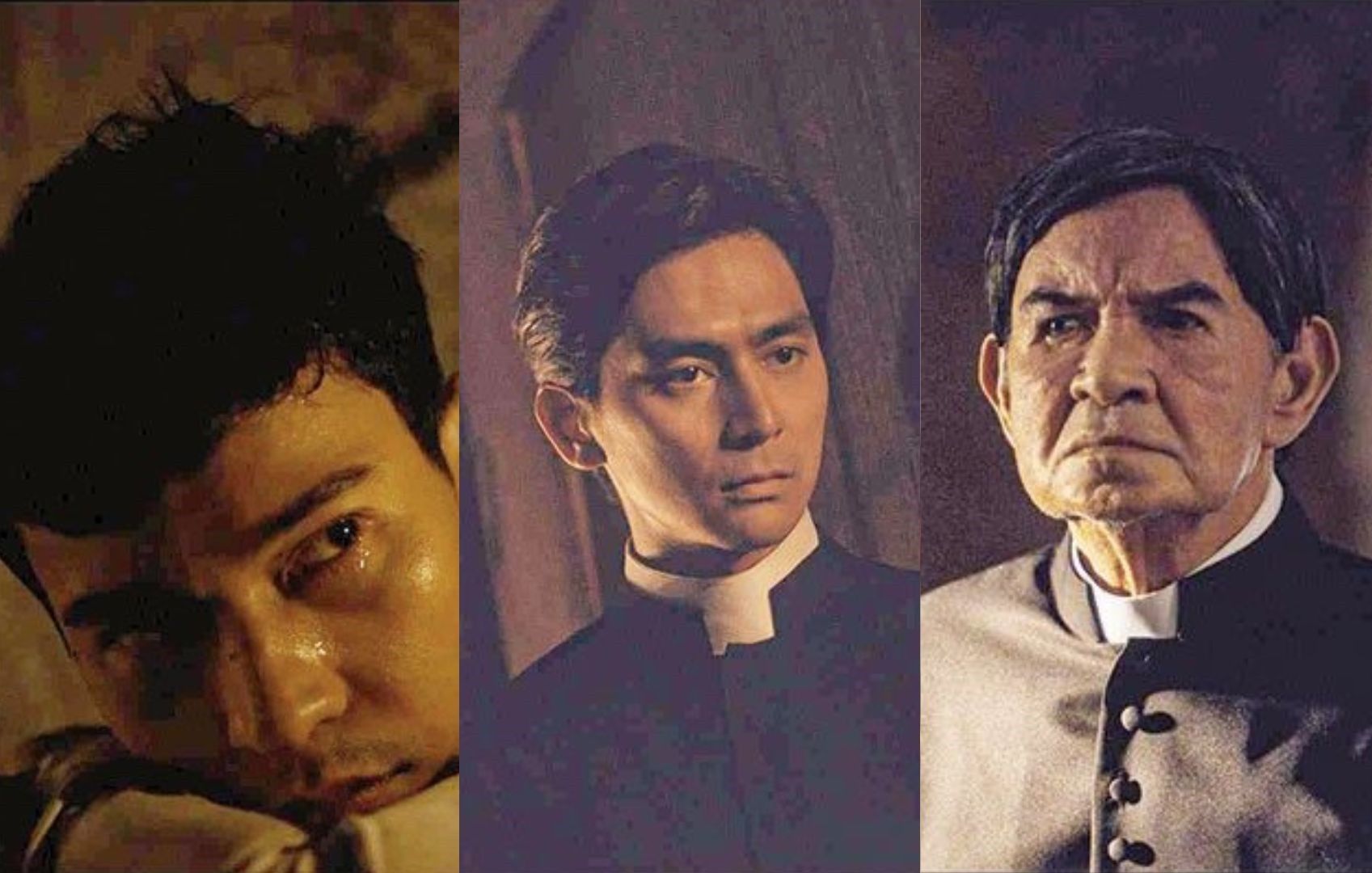The history told in Pepe Diokno's 'GomBurZa'

MANILA, Philippines — Pepe Diokno's "GomBurZa" took home the most awards at this year's Metro Manila Film Festival (MMFF) Gabi ng Parangal, but the movie's success goes beyond trophies and physical recognition.
Perhaps the film's greatest achievement is being a visual tribute and lesson for generations of Filipinos about what the titular priests Mariano Gomes, Jose Burgos, and Jacinto Zamora stood for — equality for Filipinos.
Diokno and co-writer Rody Vera set up the film with the introduction of Apolinario de la Cruz, the religious leader better known as Hermano Pule after he was rejected by Spaniards to become a priest simply because he was a native.
Pule would go on to co-found the Cofradía de San José which practiced Christian virtues that incorporated elements of pre-colonial beliefs.
In November 1841, hundreds of members of the cofradía were killed by Spanish soldiers, and Pule himself was tortured and executed by firing squad. His body was quartered and his remains scattered around what formerly the province of Tayabas.
Within the film, Pule's story is told by Padre Pedro Pelaez (Piolo Pascual) to mentee Padre Jose Burgos (Cedrick Juan) and colleague Padre Mariano Gomes (Dante Rivero).
Pelaez pushed for secularization in the Philippines after a movement where the country's churches would be consolidated under the Recollect and Dominican priests, his argument being the churches have long found favor with the secular priests.
The priest however would meet his untimely death a few weeks before turning 51 during the 1863 Manila earthquake when the Manila Cathedral collapsed, a scene included in "GomBurZa."
Thus begins the film's primary focus through the eyes of Burgos who begins teaching at the University of Santo Tomas. Two of his students were Felipé Buencamino (Tommy Alejandrino) and Paciano Rizal Mercado (Elijah Canlas).
Related: 'GomBurZa' review: Empowering tribute to Filipino martyrs
The two students, inspired by Burgos' views and teachings, begin a youth group for liberal minds which results in Buencamino's arrest; this even as the Philippines was under Governor-General Carlos Maria Dela Torre, viewed by many as a liberal leader.
On Jan. 20, 1872, a number of local soldiers and laborers staged the Cavite Mutiny believing they would be joined by compatriots in Manila — what they thought were gunfire from Intramuros were just fireworks for the feast of the Sampaloc patron Our Lady of Loreto.
The mutiny leader Fernando La Madrid was executed when he refused to shout "Viva España," but more conspiciously the mutiny was used to implicate Burgos, Gomes, and Zamora (Enchong Dee) under the new harsher Governor-General Rafael Izquierdo.
Zamora was avid player of cards, as seen in the movie, and at one time received an invitation that said that a companion had "Powder and Munitions" which meant money for gambling, however Spanish authorities interpreted the words literally when the priests were put on trial.
Aggravating the injustice was a certain Francisco Zaldua (Ketchup Eusebio) who claimed Burgos was the mastermind behind the mutiny with the intention to rule the country; Burgos who had taken up civil law attempted to defend himself rebutted as he didn't know Zaldua, but his cries fell on deaf ears.
The film gives Zaldua a more fleshed out background which leads to his betrayal. He was beaten by authorities and promised pardon in exchange for his testimony, but he was still condemned with GomBurZa and executed via garrote right before them on Feb. 17, 1872.
In the hours following their sentencing, Dee portrays Zamora as slowly losing his mind, to the point he was nearly dragged on to the Bagumbayan platform where the garrote was placed.
Gomes' final words were as recorded, "Father, I know that not a leaf falls to the ground but by the will of God. Since He wills that I should die here, His holy will be done."
Some creative liberty might have been taken during Burgos' own execution, with his final remarks, the crowd's response, and the clear presence of Paciano and his younger brother Jose "Pepe" Rizal.
Related: WATCH: Enchong Dee becomes more patriotic after 'GomBurZa'
What is certain is GomBurZa's left a mark on the young Rizal, and the author (Khalil Ramos) would dedicate his novel "El Filibusterismo" to the three priests. Rizal too would be executed at Bagumbayan on December 1896.
Diokno and his team took great care into ensuring a historically accurate depiction of GomBurZa, citing the works of historians like Fr. Rene Javellana, SJ, Fr. John Schumacher, SJ, Teodoro Agoncillo, Zeus Salazar, Ambeth Ocampo, and Xiao Chua.
The latter historian, in his own review of the film, wished there were more scenes of Gomes as a community builder and peace negotiator and of Zamora actively participating in the secularization movement.
The director was apparently aware of how contentious his depiction could be, and Chua informed Diokno of Salazar's belief that GomBurZa inspired the elites more than the poor; still though Rizal and the Katipunan continued viewing the martyred priests as inspiration.
Chua did praise an imagined dialogue between Burgos and Gomes in prison as they discuss how unlucky Filipinos are that they suffer so much, a theme that rings harder as the minutes go by.
Ocampo further noted that Diokno had the help of his aunt Maris, a professor at the University of the Philippines and the former chair of the National Historical Commission.
"GomBurZa" finished behind "Firefly," a film rooted in storytelling," at the MMFF Gabi ng Parangal, but Diokno's movie has a special story to tell on its own which again serves as a lesson and a reminder.
It should be noted as well that Diokno's father Chel is a human rights lawyer and his grandfather and namesake Jose is considered the country's "Father of Human Rights."
All GomBurZa ever strived for was equality for Filipinos and they ended up being deprived of their human rights; it's been 151 years since their death, and the Philippines continues to fight for such victims of injustice.
- Latest
- Trending






























